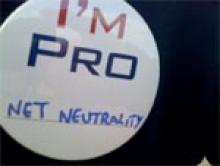A coalition of private companies, including Alcatel-Lucent, American Public Power Association, Atlantic-Engineering, the Fiber to the Home Council, Google, Intel, OnTrac, Telecommunications Industry Association, and Utilities Telecom Council, have released a letter opposing HB129/S87 in North Carolina. The bill would create considerable barriers to community broadband networks and public-private partnerships, effectively outlawing both given the restrictive language. We examined this bill here. This the text of the letter they released:
February 25, 2011
via email
Representative Thom Tillis
Speaker of the House
Room 2304
16 West Jones Street
Raleigh, NC 27601-1096
Senator Phil Berger
Senate President Pro Tempore
Room 2008
16 W. Jones Street Raleigh, NC 27601-2808
Dear Representative Tillis and Senator Berger:
We, the undersigned private-sector companies and trade associations, urge you to oppose H129/S87 (Level Playing Field/Local Competition bill) because it will harm both the public and private sectors, stifle economic growth, prevent the creation or retention of thousands of jobs, hamper work force development and diminish the quality of life in North Carolina. In particular, this bill will hurt the private sector in several ways: by curtailing public-private partnerships, stifling private companies that sell equipment and services to public broadband providers, and impairing educational and occupational opportunities that contribute to a skilled workforce from which businesses across the state will benefit.







